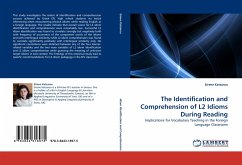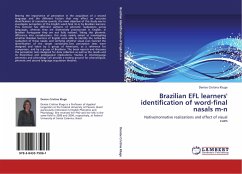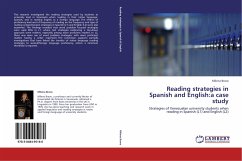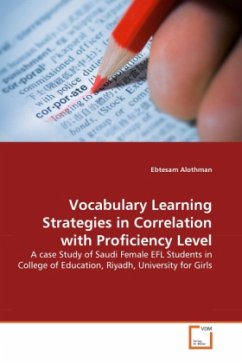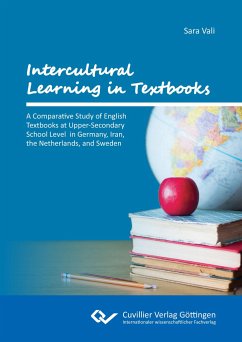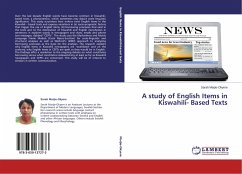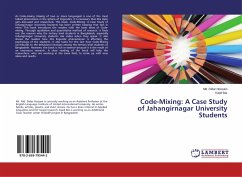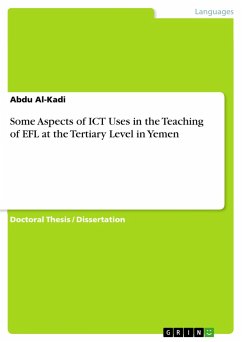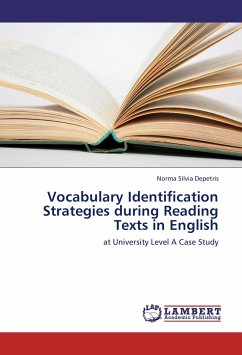
Vocabulary Identification Strategies during Reading Texts in English
at University Level A Case Study
Versandkostenfrei!
Versandfertig in 6-10 Tagen
39,99 €
inkl. MwSt.

PAYBACK Punkte
20 °P sammeln!
Interest in the role vocabulary plays as a mechanism to predict reading ability has been emphasized by many researchers due to the impact an inadequate vocabulary may have on EFL students' reading performance. Vocabulary load during reading can be so heavy that it interferes with text comprehension; hence, failure to identify unknown words and decode them within a text may be problematic. This descriptive case study sought to examine vocabulary identification strategy use during reading. The data came from two sources: answers to questions in a comprehension guide and in-depth interviews. Data...
Interest in the role vocabulary plays as a mechanism to predict reading ability has been emphasized by many researchers due to the impact an inadequate vocabulary may have on EFL students' reading performance. Vocabulary load during reading can be so heavy that it interferes with text comprehension; hence, failure to identify unknown words and decode them within a text may be problematic. This descriptive case study sought to examine vocabulary identification strategy use during reading. The data came from two sources: answers to questions in a comprehension guide and in-depth interviews. Data analysis was carried out through qualitative and quantitative methods. Main findings showed that there were some qualitative differences and a few similarities in text comprehension and word identification across participants, that there were some quantitative differences and similarities in the number and type of strategies used, and that the number and type of strategies used by the participants had an influence on text comprehension and word identification.



